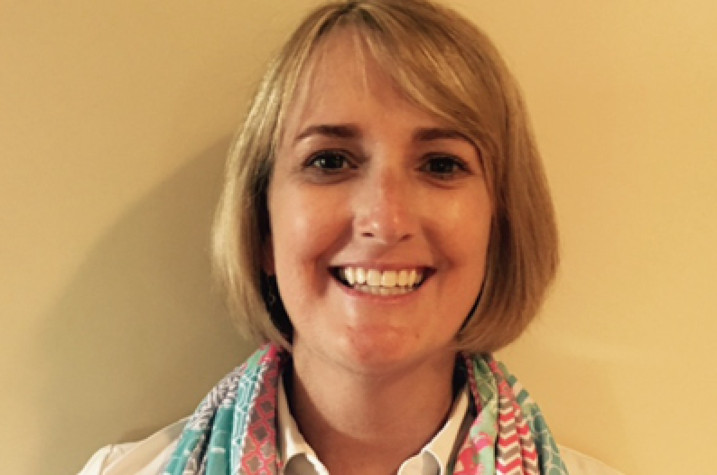Panel Discussion on Continuity of Learning During COVID-19 Features UK College of Education Professor

LEXINGTON, Ky. (July 22, 2020) — The University of Kentucky College of Education’s efforts to help pre-service teachers continue their training in the face of pandemic-related school closures will be showcased during a national teleconference.
Channon Horn, a special education clinical associate professor, was invited to serve as a panelist for the U.S. Department of Education’s Office of Special Education Programs.
“Channon was asked to participate due to her success in keeping our scholars engaged in meaningful clinical practice based opportunities. What she did allowed our students to complete a robust experience under very difficult circumstances,” said Kera Ackerman, assistant professor of special education.
In early March, faculty at the UK College of Education were called into emergency meetings. Students in the midst of required field experiences, such as student teaching and practicum placements, could be left in limbo if schools shuttered indefinitely. The novel coronavirus still felt like a distant threat, but faculty quickly created back-up plans.
By mid-March, UK students in the teacher education program had shifted to working through online modules their professors had put together and by helping keep instruction going for students through Kentucky’s nontraditional instruction program.
Horn said although teaching remotely has its challenges, it provides students with valuable opportunities to demonstrate their ability to differentiate instruction using various forms of technology. Her students were using whatever resources were available to develop instruction aligned with the individual needs of their students.
“Special education teacher candidates have been trained to be flexible and accommodating,” Horn said. “The pandemic has provided an abundance of evidence that they can do both effectively and efficiently.”
One of Horn’s students, Gabrielle Lonnemann, was doing her student teaching at Fayette County’s Picadome Elementary in a K-3 special education setting for students with learning and behavior disorders.
Lonnemann worked with her cooperating teacher through text, email, Google Drive, YouTube, Zoom and Google Meet. They developed materials to send in packets to students and recorded videos with instructions. They also met online with their students and other Picadome faculty.
“There is no better feeling than seeing those little faces on the screen and knowing that the materials you developed are being used to help your students learn and stay connected,” Lonnemann said. “It was also awesome to see how much fun they were having exploring the technology they were using.”
Horn will share about these experiences, and more, during the U.S. Department of Education’s Office of Special Education Programs virtual event, being held in lieu of the program’s annual conference for project directors.
The panel will be moderated by Mary Brownell, director of the CEEDAR (Collaboration for Effective Educator Development, Accountability, and Reform) Center and professor at the University of Florida.
The panelists are:
- Becky Hines, University of Central Florida;
- Hedda Meadan, University of Illinois Urbana-Champaign;
- Day Patterson, Georgia State University; and
- Channon Horn, University of Kentucky.
As the state’s flagship, land-grant institution, the University of Kentucky exists to advance the Commonwealth. We do that by preparing the next generation of leaders — placing students at the heart of everything we do — and transforming the lives of Kentuckians through education, research and creative work, service and health care. We pride ourselves on being a catalyst for breakthroughs and a force for healing, a place where ingenuity unfolds. It's all made possible by our people — visionaries, disruptors and pioneers — who make up 200 academic programs, a $476.5 million research and development enterprise and a world-class medical center, all on one campus.




